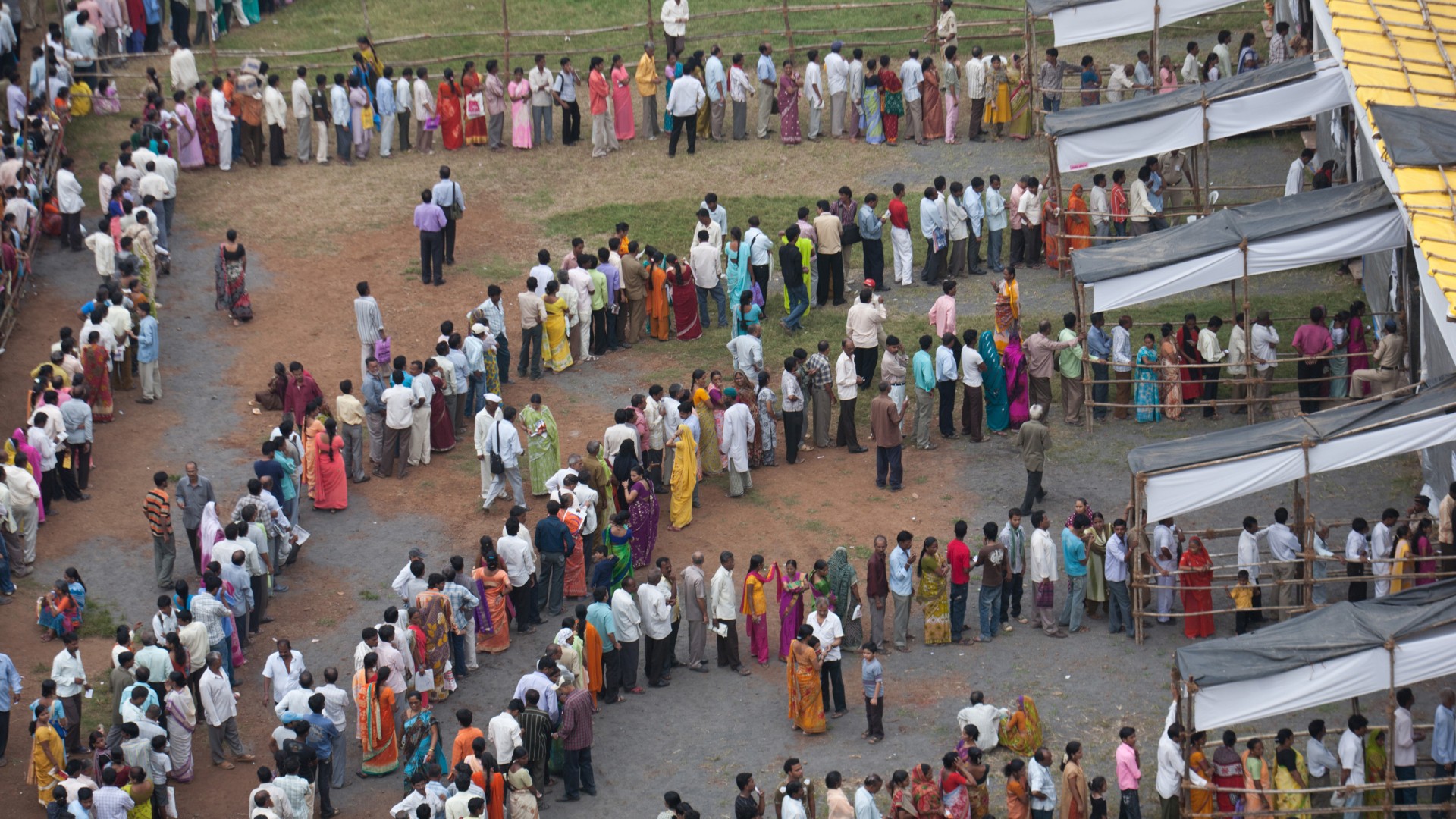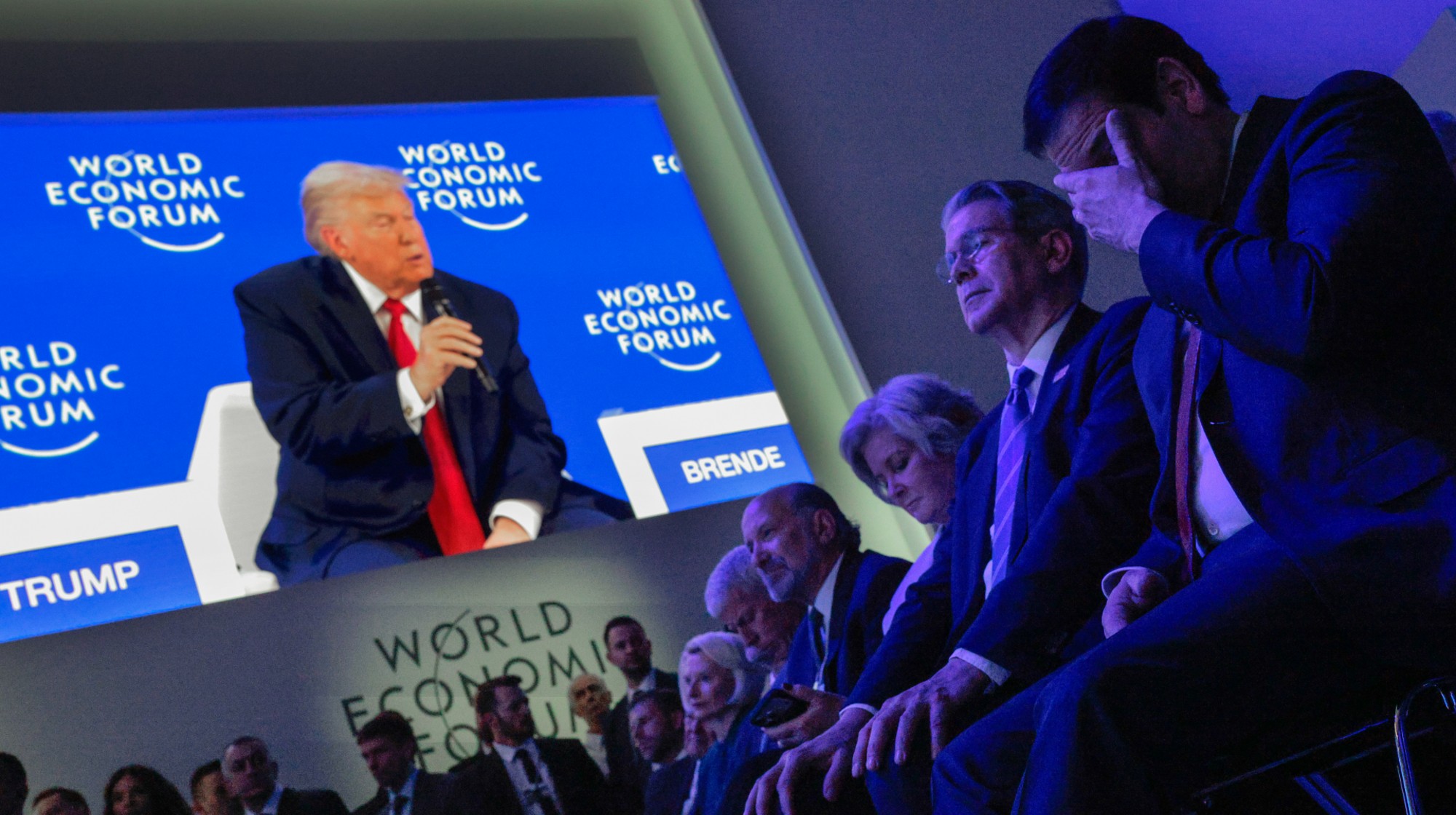How the biggest election year in history might play out
Votes in world's biggest democracies, as well as its most 'despotic' and 'stressed' countries, face threats of violence and suppression

A free daily email with the biggest news stories of the day – and the best features from TheWeek.com
You are now subscribed
Your newsletter sign-up was successful
Elections are "no guarantee of democracy", but "it's also true that democracy does not exist without elections".
So said Time magazine talking about 2024, a year dubbed "the Year of Democracy", when half the world's population are eligible to vote in elections across more than 60 countries. About 4.2 billion people representing 42% of the world's GDP have a chance to elect new leaders, according to estimates by Bloomberg Economics – "a busy lineup even in calmer political times".
This year will "put democracy through its most sweeping test yet", said Politico. Countries are preparing for possible changes of government, "raucous" public protests and populist movements with "the potential to destabilize larger regions".
The Week
Escape your echo chamber. Get the facts behind the news, plus analysis from multiple perspectives.

Sign up for The Week's Free Newsletters
From our morning news briefing to a weekly Good News Newsletter, get the best of The Week delivered directly to your inbox.
From our morning news briefing to a weekly Good News Newsletter, get the best of The Week delivered directly to your inbox.
Why is it such an important year?
Taking part in this "multinational, multiparty democratic Super Bowl" are some of the most powerful and wealthiest states, said The Guardian, such as the US, UK, Mexico and the world's most populous country, India.
Elections will also be held in "the most despotic" nations, such as Russia and Iran, and "the most stressed": Taiwan and Ukraine.
"We will know whether democracy lives or dies by the end of 2024," warned Nobel Peace Prize laureate Maria Ressa in September.
What has happened so far?
The "Year of Democracy" got off to an inauspicious start, with Bangladesh's highly controversial national election yesterday.
A free daily email with the biggest news stories of the day – and the best features from TheWeek.com
Sheikh Hasina Wazed won a fifth consecutive term as prime minister after her party, the Awami League, and its allies won 223 of 300 parliamentary seats.
The run-up to the "low-turnout election" was marred by violence and "a widespread crackdown on the opposition", said The New York Times, including the "torching" of multiple polling stations. The vote was "largely a one-sided affair", as the main opposition, the Bangladesh Nationalist Party (BNP), boycotted the election.
In recent months, many senior opposition leaders have been arrested, along with thousands of their supporters. This represents a "violent autocratic crackdown" by the government, said Human Rights Watch, in one of the region's fastest-growing economies.
Hasina, 76, has called for stability by mentioning the country's history of violent coups, including the one that killed her father, Sheikh Mujibur Rahman, Bangladesh's founding leader, in 1975. "We have struggled a lot for this voting right: jail, oppression, grenades, bombs," Hasina said after casting her vote. "This election will be free and fair." But she then called the BNP a "terrorist" organisation.
"Democracy is dead in Bangladesh," a senior BNP leader told the BBC. The party has branded the results a sham.
Which elections are the ones to watch?
The US presidential election in November, likely a bitter rematch between incumbent Joe Biden and former president Donald Trump, will be the most closely watched, affecting the global geopolitical landscape for years to come.
In India, the increasingly autocratic prime minister, Narendra Modi, will almost certainly clinch a third term in power this summer, but the ruling Bharatiya Janata Party (BJP)'s Hindu nationalist agenda has skewed the structures of power in the party's favour. Nevertheless, "electoral democracy is still very strong", Pratap Bhanu Mehta, an academic and liberal commentator, told the Financial Times.
Elections in neighbouring Pakistan are already embroiled in controversy, as on Friday the Senate passed a resolution demanding a delay to the February vote. Pakistan's election body has rejected the nomination of former prime minister and national cricket captain Imran Khan, with Khan’s Pakistan Tehreek-e-Insaf (PTI) party accusing authorities of stopping most of its candidates from participating.
Indonesia also "faces questions over its democratic spirit" ahead of its election in February, said the FT. The hotly contested race "reflects how far the world's fourth most populous country has moved since the overthrow of the autocrat Suharto 25 years ago".
Mexico will hold an election in June, marking "a democratic milestone", said the paper, as the two main presidential candidates are women. But the outgoing president, left-wing populist Andrés Manuel López Obrador, has been "chipping away at the independence of democratic institutions".
The crucial presidential election in Taiwan on Saturday will have major implications for the island's fractious relationship with neighbouring China, amid growing fears of a possible invasion. China has described the vote as a choice between "war and peace", suggesting President Xi Jinping plans to further ramp up military pressure in the Taiwan Strait.
Europe is braced for a possible surge from the far-right and Eurosceptic groups in its parliamentary elections in June, after anti-Islam extremist Geert Wilders won in the Netherlands in November.
And, in Africa, elections in Senegal, Ghana, South Sudan, Mali and Chad could "shape the trajectory of multilateral institutions across the continent", said Politico. In South Africa, the ruling African National Congress (ANC) could lose power for the first time in the country's post-apartheid history.
Harriet Marsden is a senior staff writer and podcast panellist for The Week, covering world news and writing the weekly Global Digest newsletter. Before joining the site in 2023, she was a freelance journalist for seven years, working for The Guardian, The Times and The Independent among others, and regularly appearing on radio shows. In 2021, she was awarded the “journalist-at-large” fellowship by the Local Trust charity, and spent a year travelling independently to some of England’s most deprived areas to write about community activism. She has a master’s in international journalism from City University, and has also worked in Bolivia, Colombia and Spain.
-
 House votes to end Trump’s Canada tariffs
House votes to end Trump’s Canada tariffsSpeed Read Six Republicans joined with Democrats to repeal the president’s tariffs
-
 Bondi, Democrats clash over Epstein in hearing
Bondi, Democrats clash over Epstein in hearingSpeed Read Attorney General Pam Bondi ignored survivors of convicted sex offender Jeffrey Epstein and demanded that Democrats apologize to Trump
-
 Are Big Tech firms the new tobacco companies?
Are Big Tech firms the new tobacco companies?Today’s Big Question Trial will determine if Meta, YouTube designed addictive products
-
 Epstein files topple law CEO, roil UK government
Epstein files topple law CEO, roil UK governmentSpeed Read Peter Mandelson, Britain’s former ambassador to the US, is caught up in the scandal
-
 Iran and US prepare to meet after skirmishes
Iran and US prepare to meet after skirmishesSpeed Read The incident comes amid heightened tensions in the Middle East
-
 Grok in the crosshairs as EU launches deepfake porn probe
Grok in the crosshairs as EU launches deepfake porn probeIN THE SPOTLIGHT The European Union has officially begun investigating Elon Musk’s proprietary AI, as regulators zero in on Grok’s porn problem and its impact continent-wide
-
 Israel retrieves final hostage’s body from Gaza
Israel retrieves final hostage’s body from GazaSpeed Read The 24-year-old police officer was killed during the initial Hamas attack
-
 China’s Xi targets top general in growing purge
China’s Xi targets top general in growing purgeSpeed Read Zhang Youxia is being investigated over ‘grave violations’ of the law
-
 Panama and Canada are negotiating over a crucial copper mine
Panama and Canada are negotiating over a crucial copper mineIn the Spotlight Panama is set to make a final decision on the mine this summer
-
 Trump backs off Greenland threats, declares ‘deal’
Trump backs off Greenland threats, declares ‘deal’Speed Read Trump and NATO have ‘formed the framework for a future deal,’ the president claimed
-
 Europe moves troops to Greenland as Trump fixates
Europe moves troops to Greenland as Trump fixatesSpeed Read Foreign ministers of Greenland and Denmark met at the White House yesterday